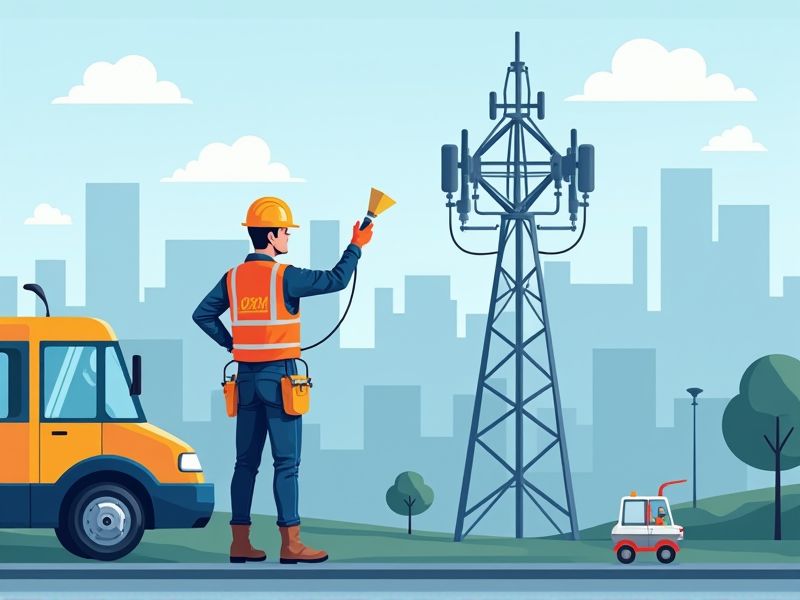
To improve at making phone calls, it's essential to focus on effective communication. As **Ernest Hemingway** noted, "When people talk, listen completely. Most people never listen" . This advice emphasizes the importance of active listening during phone calls to ensure that both parties understand each other clearly. Additionally, being concise and clear in your message can help maintain the listener's interest and avoid misunderstandings. By practicing these skills, you can enhance your communication over phone calls and achieve better outcomes.
How to Be Better at Phone Calls
Clear communication
Clear communication is crucial during phone calls because it minimizes misunderstandings and builds trust between participants. Speaking deliberately and choosing words precisely helps ensure your message is delivered accurately. Actively listening to the other person and giving feedback further promotes shared understanding. Taking a moment to summarize key points at the end of the conversation solidifies clarity and aligns mutual expectations.
Active listening
Focus entirely on the conversation by minimizing background distractions and turning off notifications before the call starts. Concentrate on the speaker's words and tone, ensuring you don't interrupt or assume meaning too quickly. Repeat key points in your own words to confirm your understanding and invite clarification when needed. This focused approach helps build rapport, reduces misunderstandings, and makes your phone conversations more productive.
Structured preparation
Begin by outlining the call's objectives and key topics to ensure focused communication. Structuring your thoughts in advance enables you to map out essential points and anticipate common questions. This preparation minimizes confusion during the call and strengthens your ability to provide concise, confident responses. With a clear framework in place, every conversation becomes an opportunity to achieve desired outcomes more effectively.
Concise language
Clear preparation enhances phone call efficiency; identify three main points before dialing to keep conversations on track. Using simplified language minimizes misunderstandings and keeps the receiver engaged. Research shows that limiting information per statement improves retention and response accuracy. Concise, data-driven communication builds credibility, leading to smoother and more productive interactions.
Positive tone
Start every call with an upbeat greeting, as studies show that a warm introduction can increase listener engagement by up to 20%. Establishing a clear objective early in the conversation creates trust and helps both parties stay focused, reducing potential misunderstandings. Maintaining a steady, cheerful tone throughout your call encourages transparency, which data suggests can boost customer satisfaction rates significantly. Concluding on a positive note reinforces a strong, professional relationship and motivates future interactions by leaving a lasting, affirmative impression.
Effective time management
Plan your calls on a structured schedule to prevent overlapping meetings and ensure each conversation gets dedicated time. Use calendar and reminder apps to manage call durations and stick to allocated time blocks, keeping distractions to a minimum. Set clear agendas before dialing in so you target key points directly, trimming off unnecessary chatter. After each call, spend a few minutes summarizing action points to improve efficiency for your future conversations.
Distraction minimization
Start by choosing an environment with minimal background noise and distraction, as research indicates that a quiet space can enhance focus and information retention. Reducing interruptions, such as silencing notifications or closing unnecessary applications during calls, directly improves your engagement and responsiveness. Setting up a dedicated workspace for phone conversations builds a habit of concentration and signals to others that these moments are important. With fewer distractions, you naturally provide clearer communication and make better, more informed decisions during discussions.
Confirm understanding
Confirm understanding during phone calls by paraphrasing key points, which minimizes misinterpretations and streamlines next steps. Actively ask clarifying questions to ensure both sides share the same perspective, reducing potential mistakes in follow-up actions. Summarize discussions periodically since this technique confirms mutual comprehension and provides an opportunity to rectify any discrepancies. Employing these verification strategies not only increases the accuracy of exchanged information but also enhances overall communication efficiency.
Empathy demonstration
Start by gently acknowledging the caller's feelings, saying things like "I understand how challenging this must be for you," which immediately builds rapport. Pause frequently during the conversation to allow the caller time to share, affirming their experience with empathetic statements. Reflect back the emotions you hear by summarizing key points, as this demonstrates that you truly understand their perspective. Finally, ask clarifying questions in a warm tone to show continued interest in resolving their issues, creating a cooperative dialogue that reduces tension.
Constructive feedback
Begin your phone calls with a clear objective and precise communication, which reduces misunderstandings and accelerates effective problem-solving. Paying close attention to your tone and pace naturally fosters a respectful conversation and helps build trust. Engaging actively by listening and asking clarifying questions encourages a positive and productive dialogue. Requesting feedback after calls creates a loop of continuous improvement, leading to more impactful and confident communications in the future.
Summary
Clear communication ensures your message is delivered without ambiguity, reducing misunderstandings and expediting decision-making during conversations. Active listening facilitates the process of accurately interpreting responses and incorporating essential details into ongoing discussions. Structured preparation empowers you to organize key points, maintain focus, and steer the call efficiently toward established objectives. Together, these strategies create a foundation for productive and impactful phone interactions that drive meaningful results.
